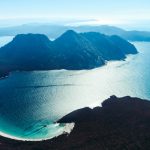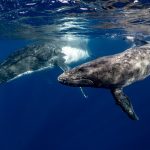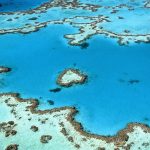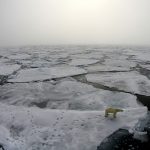 September 7, 2021 12:17 pm
Published by Climate Extremes
September 7, 2021 12:17 pm
Published by Climate Extremes
To better understand the implications of the latest climate science for Tasmania, this brief combines information from the IPCC AR6 WG1 report, with regional assessments that contributed to the UTAS Blueprint for a climate-positive Tasmania, and expertise from the Australian Research Council Centre of Excellence for Climate Extremes (CLEX). The regional information is based on Tasmania-specific downscaled modelling undertaken by Climate Futures for Tasmania.
 July 14, 2021 2:23 pm
Published by Climate Extremes
July 14, 2021 2:23 pm
Published by Climate Extremes
This study looks at 6 months of under-ice zooplankton observations from the N-ICE2015 expedition from January to June 2015 in the Eurasian sector of the Arctic Ocean north of Svalbard.
 May 6, 2021 12:35 pm
Published by Climate Extremes
May 6, 2021 12:35 pm
Published by Climate Extremes
Major gaps exist in our understanding of the pathways between the generation and the breaking of internal waves in the Southern Ocean. This has important implications for the distribution of internal wave-driven turbulent mixing, for the sensitivity of ocean mixing rates, and for the representation of ocean mixing in numerical models.
 March 8, 2021 1:54 pm
Published by Climate Extremes
March 8, 2021 1:54 pm
Published by Climate Extremes
As part of the Future Seas project, this paper summarizes knowledge and perspectives on ocean literacy from a range of disciplines, including but not exclusive to marine biology, socio-ecology, philosophy, technology, psychology, oceanography and human health.
 December 14, 2020 11:45 am
Published by Climate Extremes
December 14, 2020 11:45 am
Published by Climate Extremes
It has been remarkable how much we have achieved in this extraordinarily difficult year. Research coming out of the Teleconnections and Variability program over the past four months has strongly focused on how influences in one part of the world can have direct impacts on another.
 December 12, 2020 6:07 pm
Published by Climate Extremes
December 12, 2020 6:07 pm
Published by Climate Extremes
With the drama and instability of 2020, many of our ECRs have faced unprecedented challenges including loneliness, homesickness and the mounting uncertainties for their future careers. That latter concern may be why the majority of ECRs wanted this year's virtual ECR workshop to focus on the Future in academia and planning your research career.
 August 3, 2020 5:05 pm
Published by Climate Extremes
August 3, 2020 5:05 pm
Published by Climate Extremes
Northwest of Svalbard, north of Norway, an area known as Whalers Bay stays ice‐free in winter despite the negative air temperatures. It has been assumed that this open water is maintained by inflow of warm Atlantic Water along Svalbard’s west coast; however, this mechanism has never been demonstrated quantitatively -till now.
 August 1, 2019 10:00 am
Published by Climate Extremes
August 1, 2019 10:00 am
Published by Climate Extremes
The Climate Variability program has seen an extraordinary amount of activity over the past four months with new arrivals, a clutch of thesis submissions, awards, research voyages and a wealth of research.
 August 1, 2019 6:00 am
Published by Climate Extremes
August 1, 2019 6:00 am
Published by Climate Extremes
The past four months have seen a lot of activity around workshops, the continuing submission of research briefs (which allows us to post about the research on social media), plenty of classic traditional media activity and a new social media account.
 July 3, 2019 1:17 pm
Published by Climate Extremes
July 3, 2019 1:17 pm
Published by Climate Extremes
Winter storms over the Arctic leave a legacy that breaks up the ice, melts it from beneath and has led to constant ongoing decline in old ice that far exceeds the period of the storm itself.










